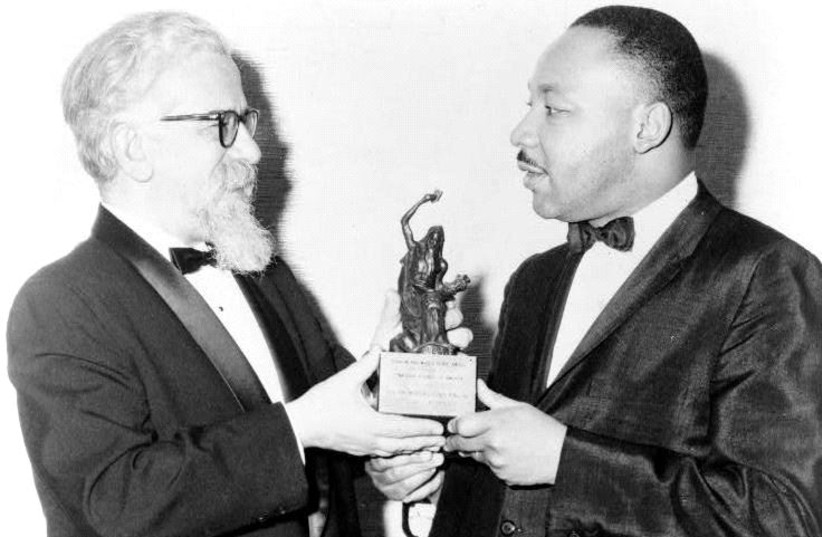This week, Americans celebrate the birthday and reflect on the life and legacy of Dr. Martin Luther King, Jr. All of us should pause and reflect on his uniquely powerful voice against racism and hate.
For Jewish Americans, Dr. King was an important ally. He devoted considerable effort to strengthen ties between the black and Jewish communities.
Last year, the US Federal Bureau of Investigation reported hate crimes targeting Americans because of their race increased more than any other category. Between 2019 and 2020, there was a growth from 3,954 to 4,939 total incidents. In 2020, there were 2,755 attacks targeting black Americans – the largest rise.
In 2019, the Anti-Defamation League, recorded more than 2,100 antisemitic acts in America of assault, vandalism and harassment. This was an increase of 12% over the previous year. In 2018 and 2019, the world watched as brave police officers battled with violent antisemites who attacked and killed worshipers in Pittsburgh, Pennsylvania and Poway, California.
Government and law enforcement certainly can play a role in addressing the rise in hate and crimes borne of hate. Policymakers in Washington have been hard at work in recent months. As Dr. Martin Luther King Jr. eloquently made clear, “Injustice anywhere is a threat to justice everywhere.” The rise in hate is not a problem limited to the Black or Jewish communities, but one our communities acutely face.

US Department of Homeland Security Secretary Alejandro Mayorkas, the grandson of a Holocaust survivor, is laser-focused. In 1999, early in his career while serving as US Attorney in Los Angeles a deranged gunman shot up a Jewish Community Center in Los Angeles. Miraculously, no one was killed that dreadful day.
With this personal background, Secretary Mayorkas led the development of the first-ever National Strategy for Countering Domestic Terrorism. Furthermore, the Department has established a new Center for Prevention Programs and Partnerships to improve the Department’s ability to combat this type of domestic terrorism and targeted violence.
The House of Representatives version of the Build Back Better legislation includes a $100 million boost for the Nonprofit Security Grant Program administered by the Federal Emergency Management Agency. These critical grants assist in security enhancements for non-profits and houses of worship. Once passed, total funding nationwide would be $280m. Synagogues and black churches in cities and towns large and small would continue to benefit.
Beyond the work of policymakers, Dr. King demonstrated the important role that black and Jewish everyday community leaders can play.
Ten days before his life was tragically cut short, Dr. King spent the evening with rabbis from across the country. This was both the 68th convening of the Rabbinical Assembly and the 60th birthday of his friend Rabbi Abraham Joshua Heschel. In his introduction, Rabbi Heschel told the audience, “Martin Luther King is a voice, a vision and a way… The whole future of America will depend upon the impact and influence of Dr. King.”
Had Dr. King lived past his 40th birthday, we can only speculate on how his voice and vision would have been utilized in future decades. We can assume that his fledgling work to deepen the natural alliance between the Black and Jewish communities would have grown with a focus to eradicate hate in America.
It is all too easy to focus on differences and on the perpetrators of evil who exacerbate these differences. This is often at the expense of the much rarer task of celebrating diverse voices who stand up and speak out and bring us together.
On that night with the rabbis, it was also the first and, sadly, only time that Dr. King heard “We Shall Overcome” sung in Hebrew.
The single most powerful way to conquer hate is to show where it can lead. We witnessed this in Memphis on April 4, 1968 and more recently in racist and antisemitic attacks across the US.
Deep in my heart, I do believe we shall overcome so that future generations of black and Jewish Americans will never have to endure seeing violence motivated by racism and antisemitism.
The writer is author of Paths of Righteous: Stories of Heroism, Humanity and Hope (Gefen Publishing).
